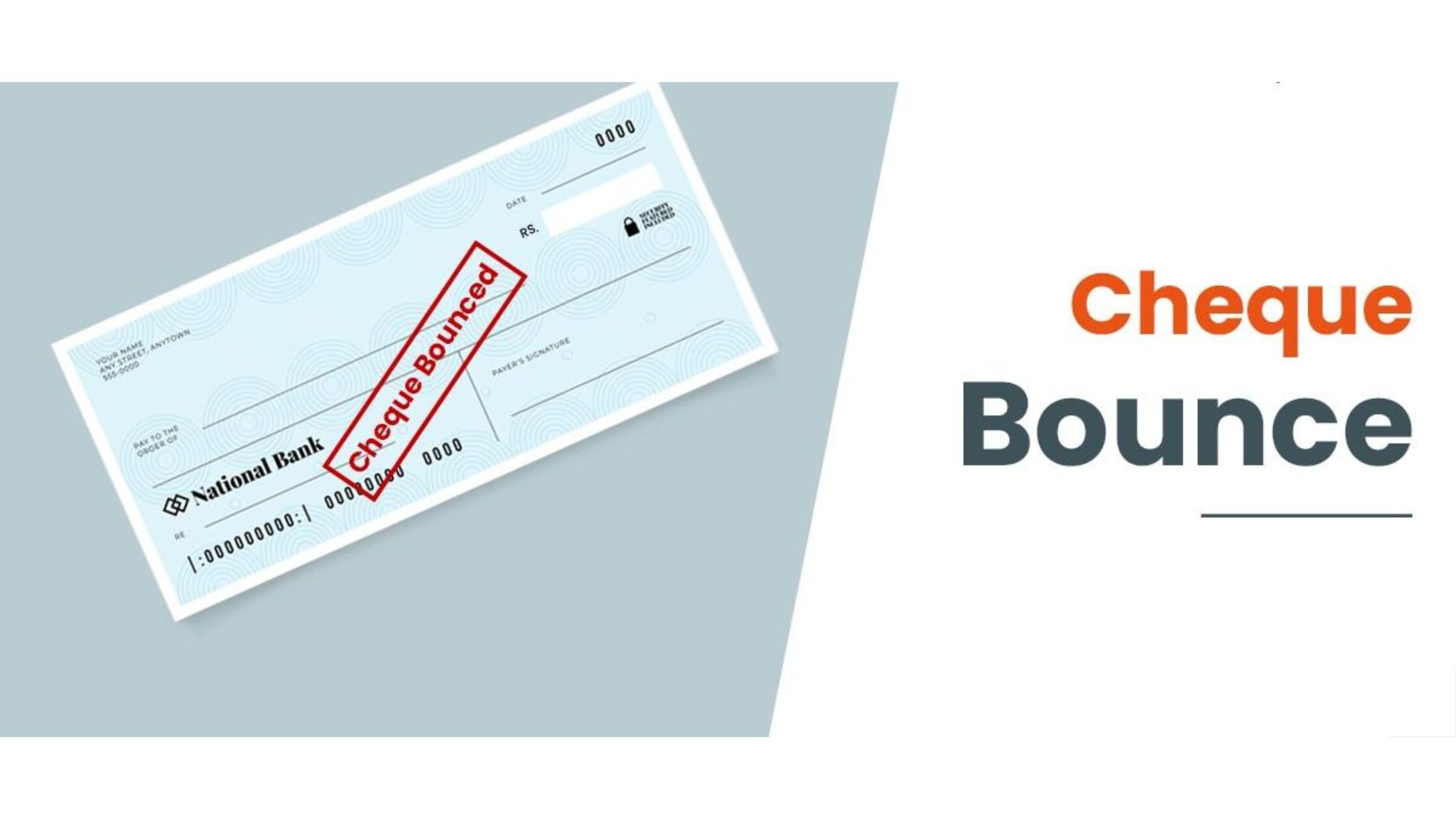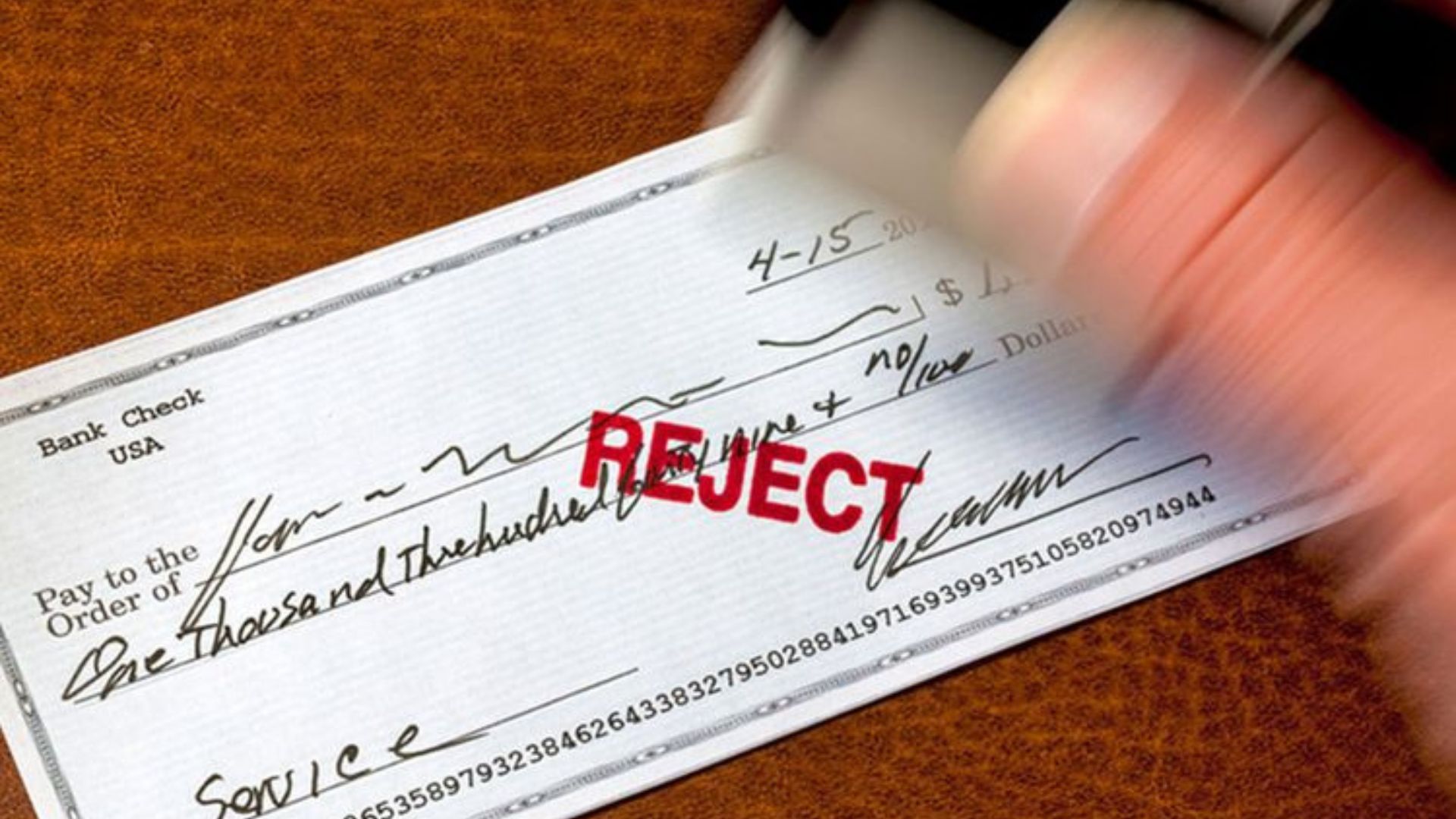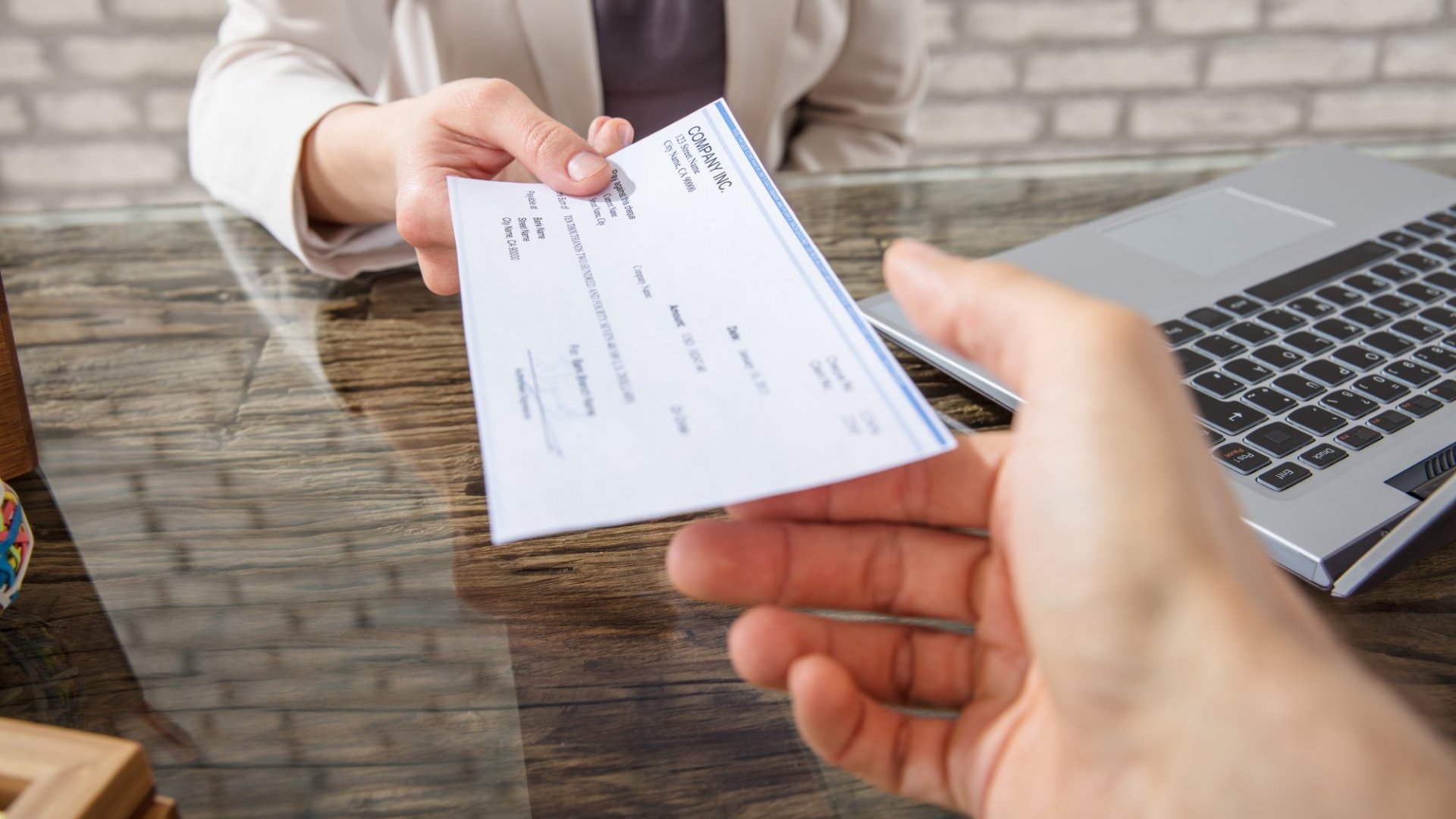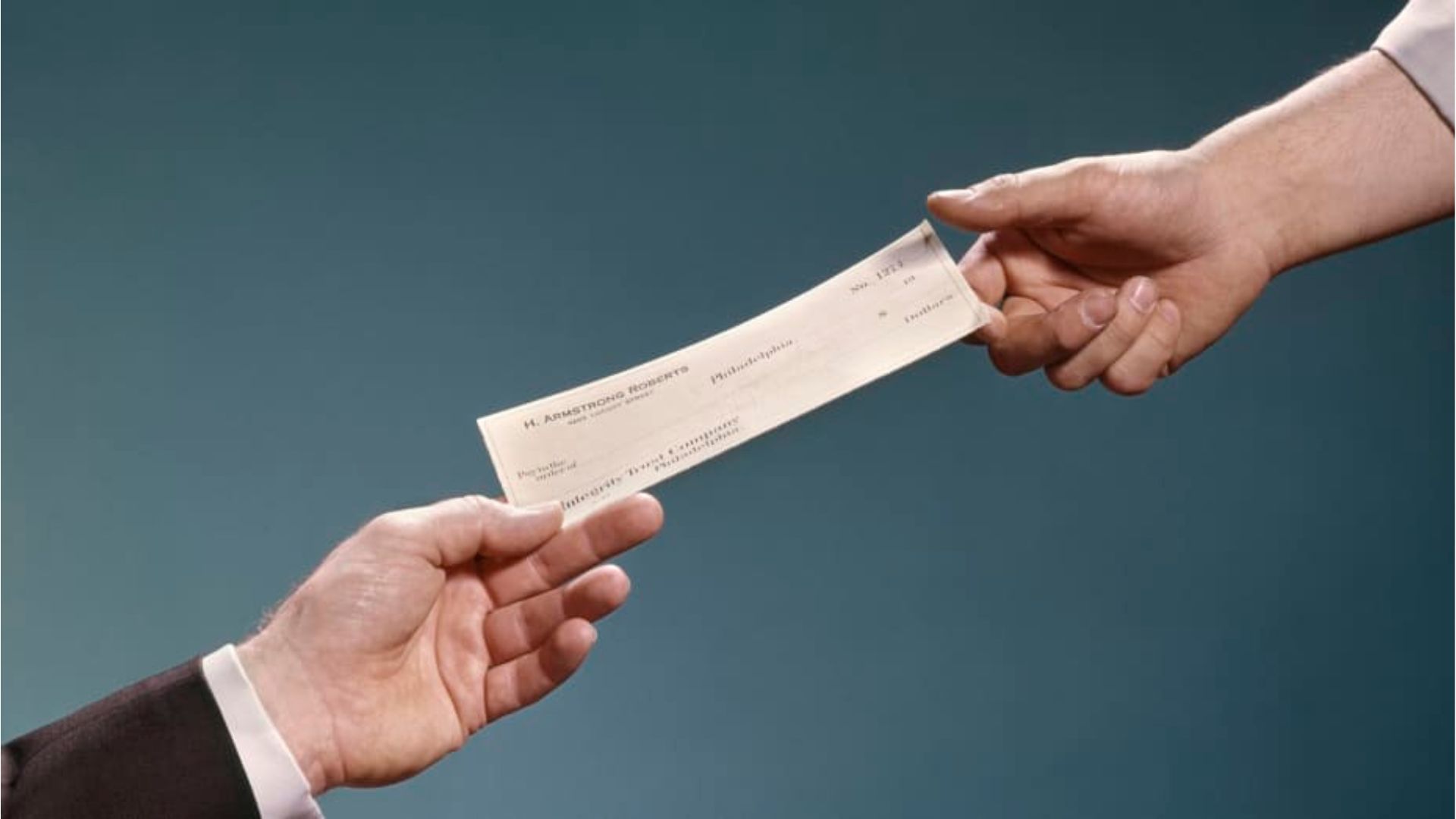What Really Occurs When A Check Bounces From A Bank's Point Of View?
A bounced check is a colloquial term for a check that cannot be honored by the bank because the account holder does not have sufficient funds to cover the amount specified on the check. When someone writes a check and there isn't enough money in their bank account to cover the check, the check "bounces" back to the payee (the person or entity to whom the check was written) unpaid. This can result in fees for both the payer and the payee, and it may also have legal consequences depending on the jurisdiction.
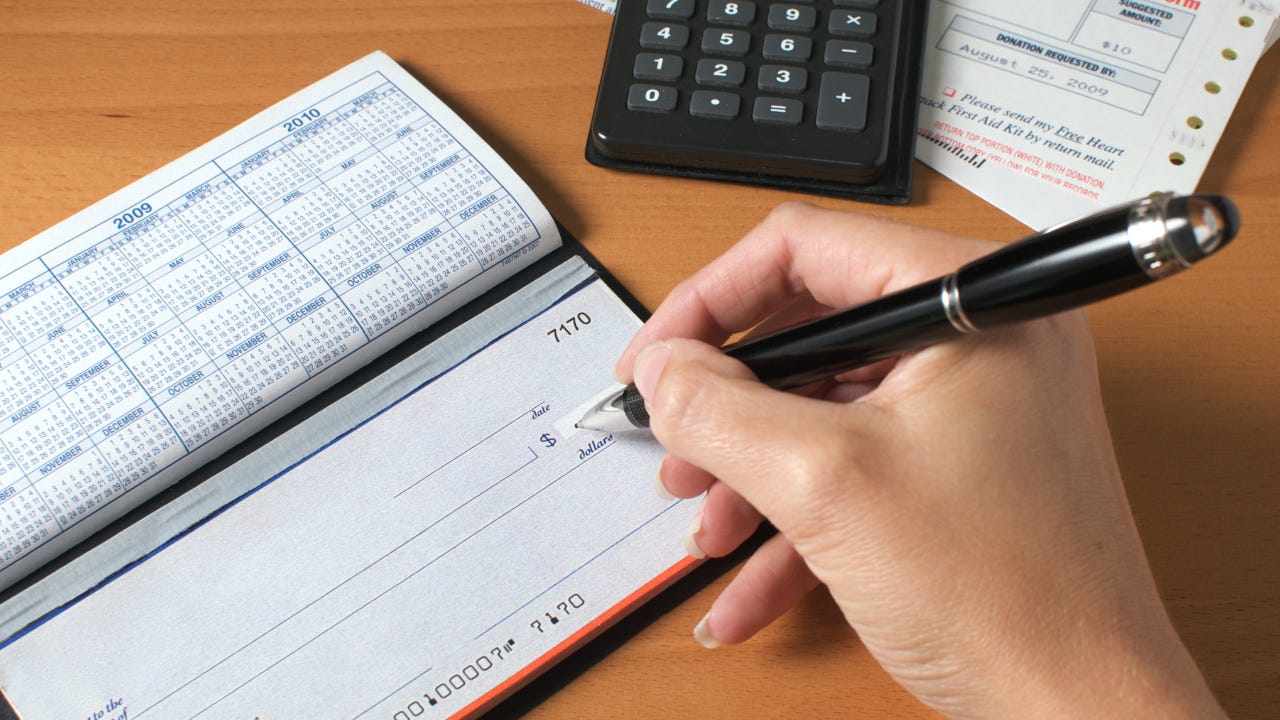
Morgan Barrons
Jan 24, 2024
What really occurs when a check bounces from a bank's point of viewis a critical aspect of financial transactions, shedding light on the consequences and intricacies involved. When individuals issue checks without sufficient funds or commit inadvertent errors, a chain of events unfolds. This article delves into the reasons behind check bounces, the repercussions for both the payer and payee, and practical steps to navigate such situations.
What Is A Bounced Check?
People write checks, but their bank accounts need more money to cover them. This is called a "bounced check." When the bank doesn't accept the check, it "bounces" it back to the account user, who is then charged a fee for not having enough money in the account.
A check that doesn't clear is sometimes called a "rubber check." Checks that need to be clarified are usually because the account needs more money in it. When a check bounces, the payee needs to get the money that was supposed to be sent, and the person who wrote the check loses money.
Why Checks Bounce?
It takes trust for people to pay with checks because no cash changes hands right away, and the money takes a few days to move from one account to another. The receiver (the person who receives the check) needs to know how much money the person who wrote the check has to spend. However, most customers bounce checks very infrequently, so checks are usually accepted without question.
You Can Write Anything
Writing a check for any amount you want is possible, even if the money in your bank account isn't actually there to spend. It's easy to write paper checks, which is against the law and a bad idea for many reasons.
Accidents Happen
Bounced checks can happen by accident, like when you write the wrong amount on the check or the wrong person's name. Miscalculations, misspelled names, or differences between the written and number amounts are all common mistakes that can lead to the bank rejecting the transaction.
Closed Accounts
There won't be enough money for the deal if the account from which the check is drawn is closed. If you try to cash or pay a check from an account that has been closed, it will bounce because there is no balance in that account to cover the amount on the check.
Stop Payment
If the account holder files a stop-payment order, the bank may not be able to honor the check, and the check may bounce. This is often done when a check is lost or stolen, there is a disagreement, or the payment plan changes, making the original check null and void.
Issues With The Check
Bounced checks can have a number of problems, such as missing signatures, postdated dates, or changes that were made to the check. Banks have rules they have to follow, and you need to follow them to avoid being turned down. If you use non-standard or non-negotiable checks, the bank may not allow the transaction, which will cause the check to bounce.
What Happens When A Check Bounces?
If a check is bounced, it can't be handled because either the account that it was drawn on doesn't have enough money or there was a mistake in the writing on the check. It can be frustrating to deal with a bounced check, whether you are the one sending or getting the money.
Outstanding Bills
If someone writes a check and it bounces, they don't get the money they came for. For example, let's say you write a check for your rent every month. The landlord only gets paid if there is enough money in your account to cover the check. In addition to the fees your bank charges, you will also owe your owner money until you can pay the rent.
Damaged Banking Record
ChexSystems is a consumer reporting service that helps banks and other financial institutions figure out how trustworthy a possible customer is. ChexSystems keeps track of how you use your bank account. Your ChexSystems report will show if you have a past of returned checks, fees that haven't been paid, and accounts that have felt the need to be closed.
Closed Bank Accounts
Your bank could freeze or close your account if you bounce too many checks. If you need help with your account, talk to someone at the bank. If the bank knows you really want to fix the problem, they may be more willing to work with you.
When A Check You've Written Bounces
If your check didn't clear, your bank might charge you a fee for needing more funds or going overdrawn. The company you were trying to pay may also charge you a late fee if your payment is now past due because of the lost check. If you don't pay your past-due fees, your account could be sent to collections.
When You Receive A Check That Bounces
If a check you sent bounced, you'll have to wait for the money you're due. Now that the payee has given you a check that bounced, you may not trust them to pay you at all. You can only meet your other cash obligations if you get paid. If you also wrote a bad check, your bank may have charged you a fee.
Overdraft Fees
There are times when your bank may choose to cover the payment but charge you a fee. Different banks charge different overdraft fees, but the CFPBsays the average is $35.
Merchant Fees
The business that received the check may also charge the person who wrote it a fee for a "bouncing check." Merchant fees are usually limited to $20 to $50 in most states.
What Do You Do If Your Check Bounces?
A lot of the time, if your check bounces, your bank will let you know that it was returned for "insufficient funds." The person to whom you owe money may email, text, mail, or call you to let you know about the lost check. Here are some things you should do after being told that your check has been returned.
Contact Your Bank
If you wrote a check that needed to be clarified, let your bank know about it and ask if there are any fees. The fee might not be charged if this is the first time a check has been returned. You can ask your bank about this.
Contact Your Payee
It is best to be honest with the person you sent the check to. If what you did was really an accident, say sorry and let them know you're working quickly to fix the problem. If you want them to cash the check again, make sure you add enough money to cover the amount.
To get their money back, if they decide not to resend the check, help them pay back the check's amount plus any bank fees. You can send a money order, pay them in cash, or use the phone.
Reimburse Your Recipient
The person who received your returned check may take you to court if you wait to pay your bill. Your first goal should be to pay back the person whose check bounced.
9 Steps To Avoid Accepting Bad Checks
Bad checks can be terrible for small business owners who are trying to make ends meet. 80% of business owners say they are stressed because their companies are having trouble with cash flow. Bounced checks can make the problem worse. Stopping bad checks in their tracks will help you keep your cash flow in check.
Have A Check Acceptance Policy
A policy on accepting checks tells you and your workers how to accept and deposit checks. This means getting a photo ID from the customer, checking the check for common signs of scams, and getting the customer's contact information when they pay. People who work for your company should know what kinds of checks it will accept and how to handle them.
Check Your Customer’s ID
The person writing the check should match the ID. It's a good idea to write the ID number on the check. You shouldn't accept the check if the name on the ID doesn't match the name on the check. These checks might be fake or fake.
Watch Your Customer Sign The Check
It is possible to change, fake, or steal checks that have already been signed. Never take checks that haven't been signed in front of you. This will protect your business and your customers. Ask the customer to put their name on the check as well if they can't read the signature.
Look At The Check Number, Amount, And Date
A bank account that is less than a year old sends most of the bad checks. Extra care should be taken if the check number is less than 125. Do not take checks that are written by hand or do not have a check number.
The amount written on the check should match the amount written on the check, and the date should match the date the check was sent in for payment. Checks with late or postdated dates should not be cashed.
Review For Common Signs Of Check Fraud
There are a few ways to tell if a check is fake. The route number at the bottom of the check and the last few digits of the Federal Reserve number at the top of the check should match. Checks that don't have perforated ends and have shiny printing might not be confirmed.
A fake check might not have a bank name on it, or the logo might be faded, which is a sign that it was copied. Also, fake checks might have only some of the personal information they should have or might have writing mistakes.
Keep Your Customer’s Contact Information
When a check bounces, the first thing you should do is get in touch with the customer to fix the problem. If a customer pays with a check, you should get their contact information in case the check doesn't clear. If their current address and phone number still need to be added to the check, ask for them to be added.
Verify Your Customer’s Funds With Their Bank
If you need to check if the check is good, call the customer's bank. It takes little time to check that the customer has money in their account. This is very helpful for checks with big numbers. Keep in mind that some banks will only tell you if the account is accurate. Some will give details about the customer's bank account.
Don’t Spend Funds From Checks Immediately
When you pay a check, the money will show up right away in your account. However, that only sometimes means that the check writer's account has been credited. If the account that wrote the check doesn't have enough money to cover it, the check will bounce, and the money will be taken back from your account. If you've already spent the money, you might have to pay an overdraft fee or get a nasty cash flow surprise.
Accept Local Checks Only
Checks from banks outside of your state are riskier than checks written in your state. This is because it's hard to get in touch with the bank to confirm the check, and you might have to look into whether an out-of-state bank exists. Checks from outside the state may also take up to two weeks to clear, or your bank may decide to hold on to them.
Frequently Asked Questions
What Happens If A Check Bounces At The Bank?
The bank returns a bounced check, indicating insufficient funds in the account.
What Happens When A Cheque Bounces?
A bounced check means the payment is not honored due to insufficient funds or other issues.
What Does A Check Mean When It Bounces?
A check bounces when there's not enough money in the account to cover the amount.
Why Would A Bank Cheque Bounce?
Reasons for a bounced bank check include insufficient funds, account closure, or a stop-payment request.
Final Words
Understanding what really occurs when a check bounces from a bank's point of view is pivotal for individuals, businesses, and financial institutions alike. From fees and legal implications to damaged banking records and strained relationships, the repercussions are multifaceted. Employing stringent check acceptance policies and proactive measures can mitigate the risks associated with bounced checks, fostering a more secure and reliable financial environment.
